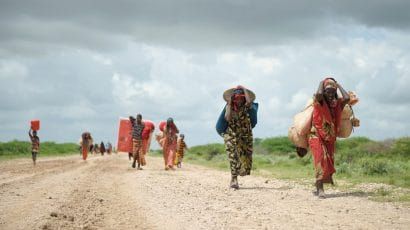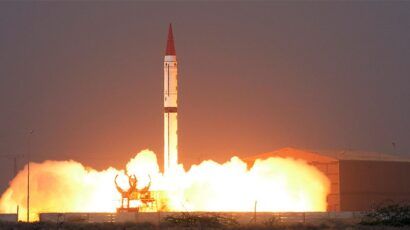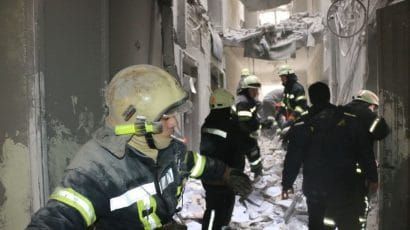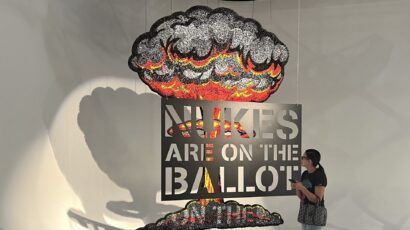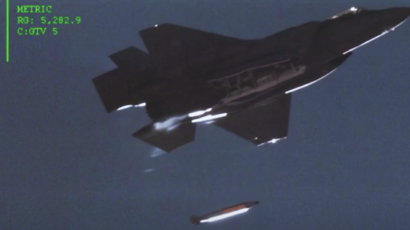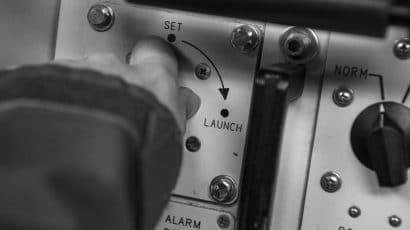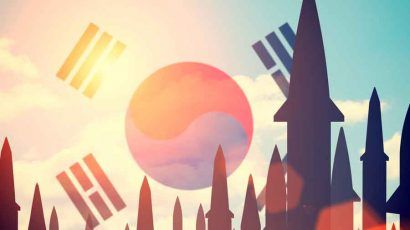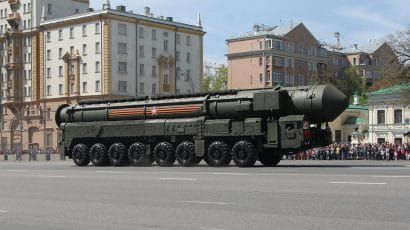Search results for trump
Third time’s the charm? Vital questions about the White House’s COVID-19 vaccine plan
US officials point to data suggesting that breakthrough infections in vaccinated people leading to serious cases of COVID-19 could start to tick up. The Biden administration announced that vaccinated people could begin receiving booster shots in September.
How it feels to predict a pandemic: Interview with David Quammen, author of Spillover
Eight years ago, author David Quammen interviewed scientists about the possibility of a new pandemic. Their prediction: there would indeed be a new disease, likely from the coronavirus family, coming out of a bat, and it would happen in or around a wet market in China. But what was not predictable was how unprepared the world would be.
Fed up: High stakes but lower hopes in run-up to COP26
Younger generations want global leaders to commit to drastically reducing greenhouse gas emissions, and to finance climate mitigation and adaption in the hardest hit countries.
A US history of not conducting cyber attacks
On numerous occasions the US military considered conducting cyber attacks but refrained. These incidents reveal much about US strategic thinking, posturing, and assessments about the limits of cyberspace.
An American reporter in North Korea
A foreign journalist ekes out insight on the US-North Korean nuclear standoff from a visit to Pyongyang.
A Japanese scholar gives her personal view on J. Robert Oppenheimer
I cannot give a broad, sweeping view of what every single person in Japan thinks of J. Robert Oppenheimer, the father of the atomic bomb. No one can. But as a researcher in international politics at a Tokyo university, I can give my own, personal viewpoint of the man, about whom I wrote a book in 1995.
Copy of 2021 Annual Event Program
Conversations Before Midnight Virtual Reality Tour through the Doomsday Clock, 2018-19, In Memory of Martyl, courtesy of Ellen Sandor & (art)n. Annual Event November 9, 2021 | 5:00 p.m. – 7:00 p.m. Central Time This unique virtual experience allows you and your guests to join small, carefully curated “tables” and engage with our global audience, … Continued
Speaking up for science: A perspective from the Boston science rally
“Remember polio? I don’t.” Here’s why one sign at the Boston science rally touched a nerve.
Pakistan nuclear weapons, 2023
Pakistan’s nuclear arsenal is estimated to currently include approximately 170 warheads. It could realistically grow to around 200 by 2025 at the current growth rate.
Could mammoths or carbon dioxide eating microbes solve climate change before the US government does?
Some pretty far-out ideas for climate change are being developed in biology labs in the United States. Could scientific developments like a lab-created woolly mammoth or carbon dioxide eating microbes be surer bets to tackle climate change than US governmental action?
South Asia is not the most dangerous place on Earth
While the nuclear situation between India and Pakistan is not good, it's been over-dramatized as near-inevitable here in the West, says a noted physicist from the region.
Accusations (and evidence) of Russian war crimes in Ukraine
Ukrainians have accused the Russians of genocide and taken their case to the International Court of Justice in The Hague. Unfortunately for the Ukrainians, the evidence is accumulating too quickly.
Searching for nuclear bombs at the Democratic convention
With "joy" as the operative word among Democrats rallying at the DNC, nuclear weapons seemed very far from their minds.
Why the Biden administration’s new nuclear gravity bomb is tragic
The new B61-13 nuclear bomb, it turns out, is just another option to blow up something the Pentagon can already destroy, and many times over. In fact, each US nuclear-armed submarine carries seven times the destructive power of all the bombs dropped during World War II, including the two atomic bombs dropped on Japan.
The United States would be more secure without new intercontinental ballistic missiles
There are strong arguments to be made against building new US intercontinental ballistic missiles, on the basis of their cost, their vulnerability, and the contribution of their launch-on-warning posture to the danger of accidental nuclear war. This piece lays out those arguments and points out that, if Congress is unable to make a decision on eliminating US ICBMs in the next few years, the life of existing Minuteman III missiles could be extended to 2060 at a much lower cost than the new ICBM.
A history of US nuclear weapons in South Korea
Nuclear Notebook: How many nuclear weapons does the U.S. have in South Korea? During the Cold War, the United States deployed nuclear weapons in South Korea continuously for 33 years, from 1958 to 1991. The South Korean-based nuclear arsenal peaked at an all-time high of approximately 950 warheads in 1967. Since the last US nuclear … Continued
Turkey’s nuclear ambitions
This month Turkey and Japan agreed to begin exclusive negotiations on constructing four nuclear power reactors at Sinop on the Black Sea. The deal marks the start of Turkey's second nuclear power project, after it reached a similar deal three years ago with a Russian consortium to construct four reactors at Akkuyu near the Mediterranean.
A failure to review America’s nuclear posture
With his new Nuclear Posture Review, President Biden has passed on his best chance to reduce the role of nuclear weapons in US security policy.
Nuclear Notebook: How many nuclear weapons does Russia have in 2021?
Russia’s nuclear arsenal includes a stockpile of approximately 4,489 warheads. Of these, some 1,630 strategic warheads are deployed on ballistic missiles and at heavy bomber bases, while an additional 947 strategic warheads, along with 1,912 nonstrategic warheads, are held in reserve.
